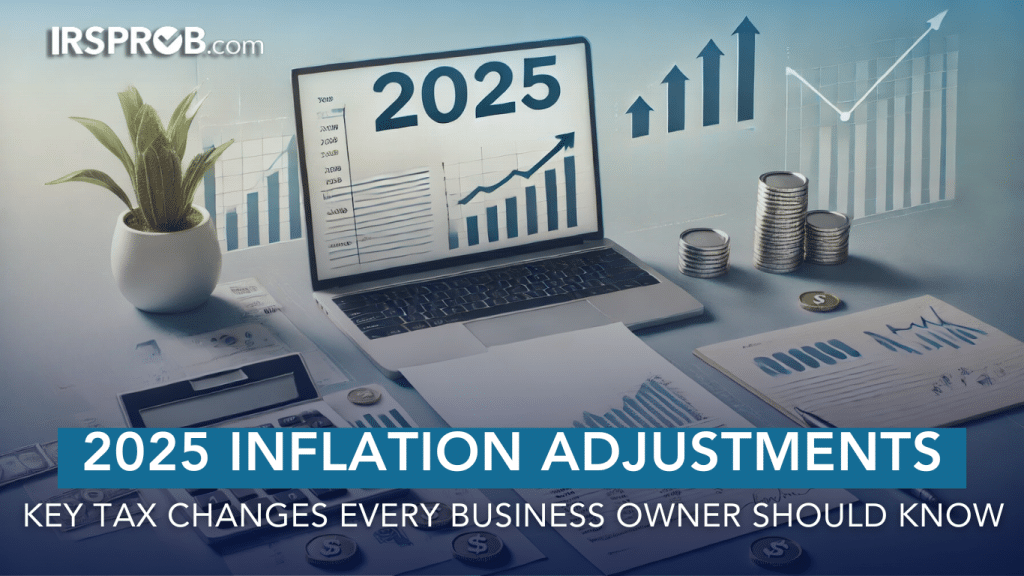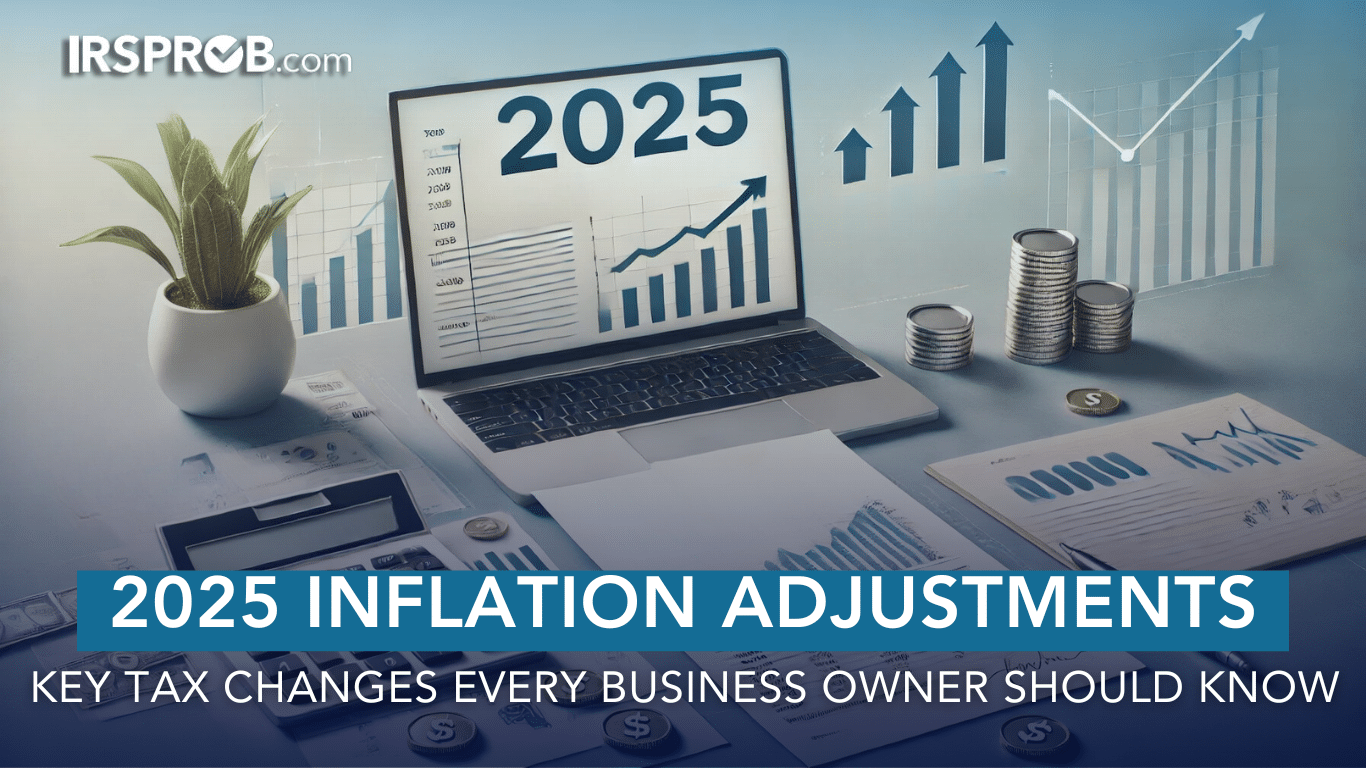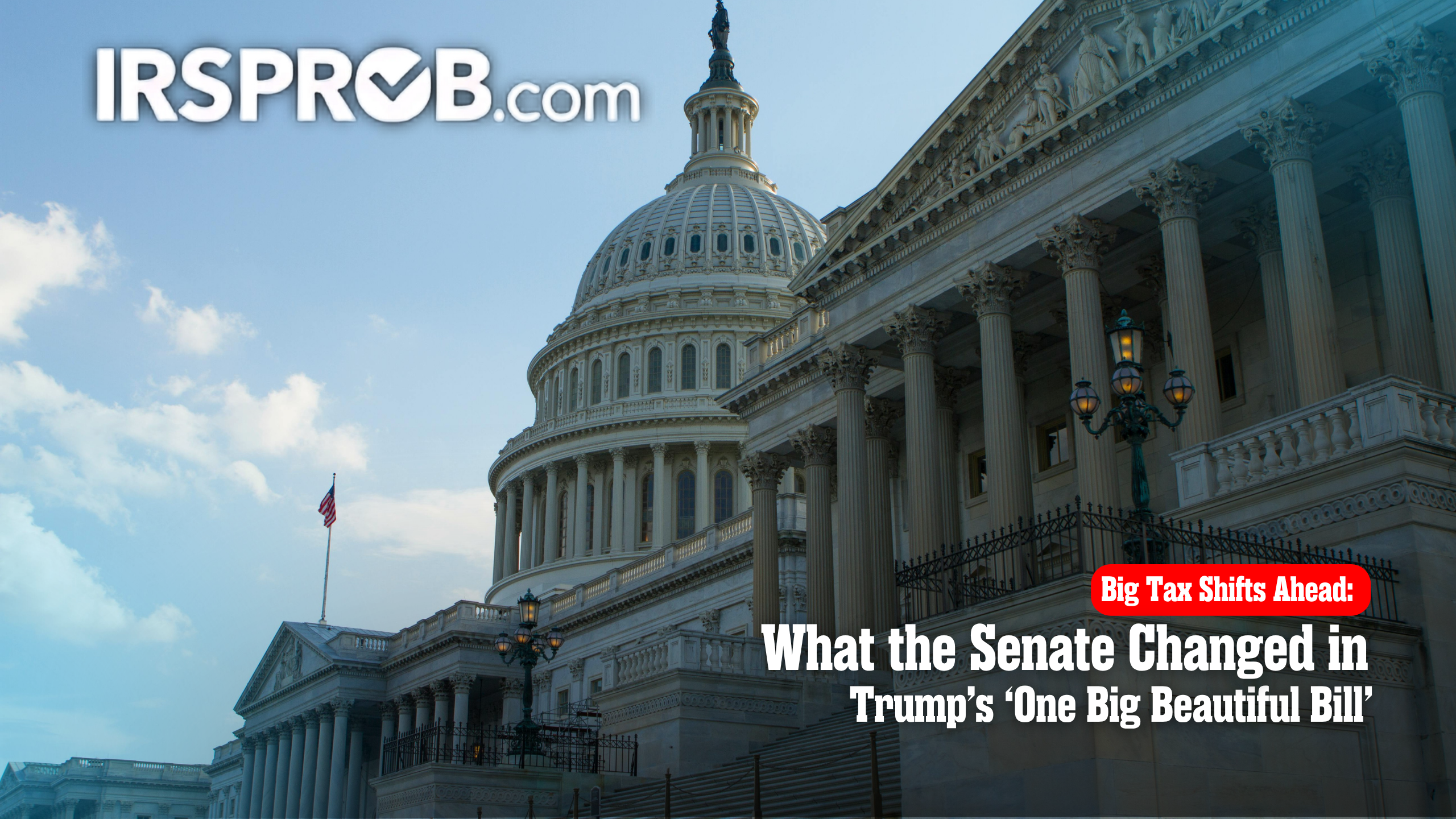
Each year, the IRS adjusts various tax provisions to account for inflation, impacting standard deductions, income thresholds, and retirement contributions. These adjustments are particularly relevant for business owners who need to strategize effectively to minimize their tax burden. Understanding these changes for 2025 can be essential for year-end planning, retirement savings, and maximizing deductions.
Standard Deduction Increases
For 2025, the IRS has raised the standard deduction across all filing statuses:
- Married Filing Jointly (MFJ)/Qualifying Surviving Spouse (QSS): $30,000, up from $29,200 in 2024.
- Single/Married Filing Separately (MFS): $15,000, up from $14,600.
- Head of Household (HOH): $22,500, up from $21,900.
These increases mean that more of your income will be shielded from tax, potentially reducing your taxable income even if your earnings remain steady. For business owners who file jointly with a spouse, the increase is particularly beneficial, especially if you have other deductions such as health savings account (HSA) contributions or qualified business income (QBI) deductions.
Earned Income Tax Credit (EITC) Adjustments
The maximum Earned Income Tax Credit (EITC) for 2025 has been increased for taxpayers with qualifying children:
- 3 or More Children: $8,046, up from $7,830 in 2024.
- 2 Children: $7,152, up from $6,960.
- 1 Child: $4,328, up from $4,213.
These increases aim to provide additional support for lower- and moderate-income families. Business owners with employees in this income bracket may see their team members benefit, potentially reducing the demand for employer-provided financial assistance.
Section 179 Deduction for Business Assets
For 2025, the Section 179 expense limit, which allows businesses to deduct the cost of qualifying property, has been increased:
- Expense Limit: $1,250,000, up from $1,220,000 in 2024.
- Investment Limit: $3,130,000, up from $3,050,000.
This increase offers more flexibility for small and medium-sized businesses to deduct the cost of equipment and certain software, lowering taxable income. The Section 179 SUV limit also rises to $31,300, providing additional deductions for heavier vehicles used predominantly for business purposes.
Estate and Gift Tax Exemptions
The estate tax exemption amount, a key figure for business owners planning to pass their business on to heirs, has increased to $13,990,000 per individual in 2025, up from $13,610,000. Similarly, the annual exclusion for gifts has risen to $19,000, up from $18,000. These adjustments can help business owners transfer more wealth tax-free, making it easier to preserve business assets for future generations.
Retirement Savings Contribution Limits
2025 sees increases in contribution limits across various retirement plans, allowing business owners to set aside more for their retirement tax-free:
- 401(k) Elective Deferral: $23,500 for individuals under 50; for those aged 50 and older, the limit is now $31,000.
- IRA Deduction: $7,000 for under 50, and $8,000 for 50 and older.
- Defined Contribution Plan: Increased to $70,000, up from $69,000 in 2024.
For business owners with SIMPLE IRAs, the elective deferral limits for ages 60-63 also rise significantly, providing added tax advantages for those nearing retirement.
Qualified Business Income (QBI) Deduction Thresholds
The threshold amounts for the QBI deduction have been adjusted:
- Married Filing Jointly: $394,600, up from $383,900 in 2024.
- Single and Head of Household: $197,300, up from $191,950.
These adjustments allow more business owners to qualify for the 20% QBI deduction, a valuable tax break designed for small businesses and self-employed individuals. Keeping income under these thresholds may help maximize your deductions, particularly if combined with other strategic tax moves.
Foreign Earned Income Exclusion
For business owners working abroad, the foreign earned income exclusion has increased to $130,000, up from $126,500. This increase allows U.S. citizens working outside the U.S. to exclude a larger portion of their earnings from federal taxation, making it especially beneficial for business owners with international operations or contracts.
Practical Steps for Business Owners
To leverage these inflation adjustments effectively, consider the following strategies:
- Review Your Salary Structure and Employee Benefits: Adjusting employee benefits, particularly retirement contributions, can maximize tax efficiency and boost employee retention.
- Plan Asset Purchases Strategically: With the increase in Section 179 deductions, it’s an ideal time to consider purchasing or upgrading business equipment.
- Evaluate Estate and Gift Planning Needs: The higher estate and gift exemptions provide more flexibility to transfer wealth tax-free. Consult with a tax professional to structure your estate in a way that preserves your business assets for future generations.
- Optimize QBI Deduction Strategies: If your income is near the new QBI thresholds, consider additional deductions or income deferrals to fully capitalize on this deduction.
By understanding and utilizing these inflation-adjusted changes, business owners can optimize their tax strategies, potentially reducing their tax liability and securing financial stability for themselves and their businesses.









